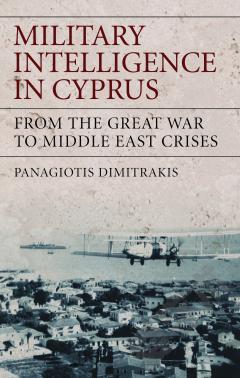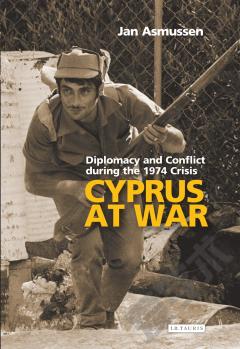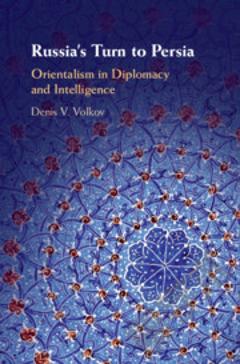Military Intelligence in Cyprus —— From the Great War to Middle East Crises
----- 塞浦路斯军事情报:从大战争到中东危机
Since World War I, Cyprus has played a crucial role in British defence strategy. Panagiotis Dimitrakis here introduces new research which reveals the role of British intelligence on Cyprus throughout the twentieth century. During World War II, Winston Churchill feared a German airborne assault after the fall of Crete in May 1941 and the SOE was called in to set up stay-behind guerrilla groups. In the 1950s, following the British withdrawal from Egypt, Cyprus became the new location for the British Middle East military headquarters and the sovereign bases on the island remained strategically important, contributing significantly to British strategic policy on the Middle East. Anthony Eden and Harold Macmillan subsequently witnessed the 1955-59 Archbishop Makarios and EOKA-led revolt and the decline of British power after the Suez crisis. Even after Cypriot independence was granted in 1960, RAF bombers carrying nuclear weapons, based on the island were the only deterrent capability of the Central Treaty Organisation (CENTO), a West-inspired alliance with member states including the United Kingdom, Turkey, Iran and Pakistan. Panagiotis Dimitrakis provides new perspectives on the Turkish invasion of July 1974, including the performance of British intelligence during the crisis. He unearths the policies of Harold Wilson and James Callaghan towards Greece, Turkey and the United States are unearthed with the help of the latest declassified archives, which show that Callaghan himself admitted to being deceived by the assurances of the Turkish government that they would not invade. As a result of the increased tensions between the Middle East and the West in the late twentieth century, Cyprus faced an asymmetric threat. In February 1978 the conflict at Larnaca Airport between the National Guard and an Egyptian anti-terrorist unit showed the world that a hostage crisis could damage considerably the relations of sovereign states. This book evaluates the integral role that Cyprus played in British military and security apparatus throughout the turbulent twentieth century. It will be an invaluable resource for readers of military history, contemporary strategy, security studies and regional studies of the Mediterranean and the Middle East.
{{comment.content}}








 京公网安备 11010802027623号
京公网安备 11010802027623号